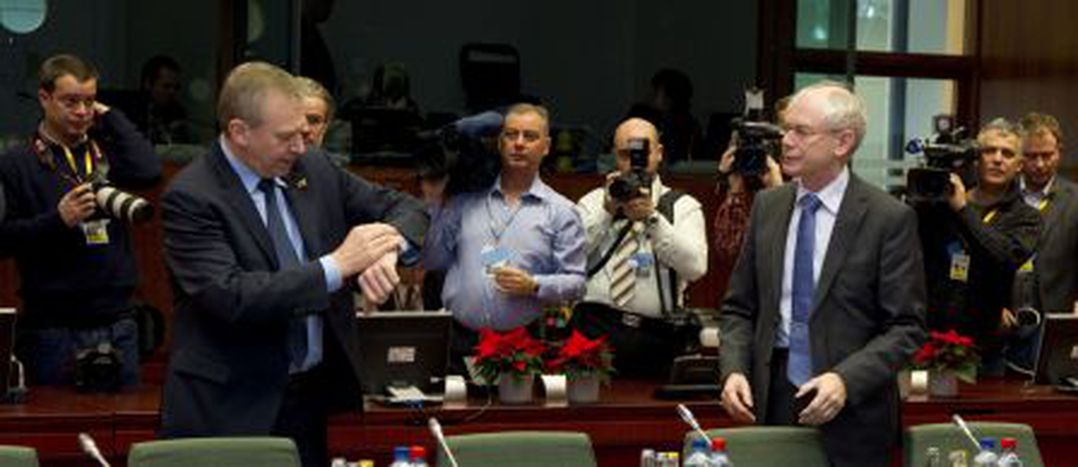
Continuity becomes the magic word - The Trio
Published on
By Delphine Reuter The Belgian Presidency of the European Council will end in two weeks. It will then be Hungary's turn to take over the six-month-long presidency for what promises to be a challenging term.
Both European Council President Herman Van Rompuy and Belgian Premier Yves Leterme, flanked by European Commission President José Manuel Barroso, took the opportunity of the Presidency's last summit to reflect on the successes and challenges they encountered over the last six months.
Van Rompuy appeared visibly satisfied with the Council's latest achievements announced yesterday, the establishment of permanent mechanisms to ensure the EU's economic stability, and the slight changes in the Lisbon Treaty enabling these mechanisms. He also enhanced the EU's focus on its external relations with global partners through the use of reciprocity between EU Member states. Amongst his examples were the summit with US President Obama which focused on green growth and job security, and the summit with Indian Premier Manmohan Singh which tackled antiterrorism issues.
Belgian Premier Yves Leterme said the Council was "a good opportunity to evaluate" the work done over the last six months. He said that about 50 agreements had been reached in total, the vast majority of which were co-decisions. Leterme also said Belgians learned lessons on two main principles: that it is more necessary than ever to engage in teamwork (he declared "we manage to move the EU again by joining forces") and the importance of focusing on the EU agenda through the support of the Lisbon Treaty.
"These last six months were very challenging for the EU and more specifically for its currency", said Leterme. "We've come a long way together."
He said that under his presidency, the European Council focused on five axes:
-
financial and economic agreements (the financial supervision package, the free-trade agreement with South Korea, the preparation of the 2011 budget);
-
external relations (start of the External Action Service, progress made in enlargement dossiers);
-
environment (Leterme said the EU managed to speak with one voice at Nagoya and Cancún talks);
-
involvement of governments in EU 2020 strategy (the last action being a proposal for a directive on fighting human trafficking);
-
social Europe (a declaration on pensions and minimum wages will be ready in the last weeks of the Presidency, according to Leterme.).
Van Rompuy ended the conference by mentioning a few of the upcoming challenges of the Hungarian Presidency that will start on January 1, 2011.
"They have a huge programme", he said.
It comprises legislative proposals in the economic field, development of partnerships with eastern countries, new energy policies, etc. The specifics will be presented at the European Parliament some time at the beginning of January.
Answering journalists, Leterme mentioned that the trio of presidencies (Spain from January 1, 2010; Belgium from July 1, 2010; ad Hungary from January 1, 2011) is a successful strategy to drive the EU forward.
"Before taking over the Presidency, we had some doubts about the concept of the trio. But it's fair to say that having three presidencies with common goals and agreements on how to try to put it in place is a very positive evolution. I already spoke with Viktor Orbán (the Hungarian Prime Minister) and I think his answer will be the same."



